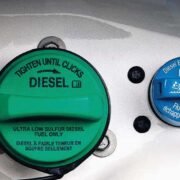As the summer sun intensifies, finding effective ways to protect your car from sun exposure should be a top priority. The harsh rays and elevated temperatures can wreak havoc on your car’s interior and exterior, leading to faded paint, damaged upholstery, and various mechanical issues. However, you can easily protect your car from the sun with the right knowledge and a proactive approach.
Effect of Hot Weather on Cars
As temperatures rise, several critical components of your vehicle can suffer, leading to a range of issues that can impact your driving experience and, more importantly, your car’s reliability.
Engine Performance and Overheating
- Increased risk of engine overheating: High temperatures can cause the engine to run hotter than normal, especially during prolonged use or while idling in traffic. This excess heat can strain the cooling system, potentially leading to overheating if the system is not maintained properly or has low coolant levels.
- Impact on engine oil and lubrication: Engine oil keeps the engine components lubricated, reduces friction, and helps manage heat. However, oil can degrade faster in hot weather, losing its viscosity and effectiveness. This can lead to increased wear and tear on the engine parts, reduced performance, and, in severe cases, engine failure.
Battery Health and Electrical Systems
- Battery degradation and reduced performance: Does heat affect the car battery? Yes, and you might also wonder, “What temperature kills a car battery?” A battery’s internal temperature can reach 140 degrees or more. These high temperatures can accelerate battery degradation by causing the battery fluid to evaporate, leading to internal damage and a shorter lifespan. This degradation affects the battery’s ability to hold a charge and start the engine.
- Strain on electrical components: High temperatures can also affect the electrical system, including the alternator, wiring, and connectors. Heat can lead to increased resistance in electrical circuits, causing components to work harder, which may result in premature wear or failure.
Tire Pressure and Wear
- Tire expansion and pressure fluctuations: Does hot weather affect tire pressure? Yes. Air expands as it heats up, which can lead to overinflated tires if not monitored and adjusted. Overinflation reduces the tire’s contact area with the road, affecting traction, handling, and braking efficiency.
- Accelerated tire wear and potential blowouts: The combination of hot roads and overinflated tires can accelerate tire wear, increasing the risk of tire failure or blowouts. Regular inspections and knowing how to put air in your tires according to the manufacturer’s specifications are vital to ensure safety and prolong tire life during hot weather.
Interior Comfort and Air Conditioning
- Heat buildup in the cabin: Your car’s interior can become uncomfortably hot in sunny conditions, with temperatures inside the vehicle significantly exceeding those outside. This heat buildup affects passenger comfort and can damage interior materials and electronics over time.
- Strain on air conditioning system: The air conditioning (AC) system works harder in hot weather to maintain a comfortable cabin temperature, straining the system’s components. This increased load can lead to wear and tear, reducing the system’s efficiency and effectiveness. Regular AC maintenance, such as checking for refrigerant leaks and ensuring the system is properly charged, can help prevent issues and ensure your car remains comfortable even on the hottest days.
Tips for Protecting Your Car in Hot Weather
Taking proactive steps to protect your car can prevent damage and ensure it runs smoothly throughout the summer. Here are some essential tips for safeguarding your vehicle during hot weather:
Regular Maintenance Checks and Inspections
- Checking engine coolant levels and radiator: The cooling system is your car’s first line of defense against overheating. Ensure your engine’s coolant levels are adequate, and check the radiator for any signs of leaks or damage. A well-maintained cooling system circulates coolant efficiently, preventing your engine from overheating even on the hottest days.
- Inspecting battery health and electrical connections: Inspect your battery for any signs of corrosion or wear, and check the electrical connections to ensure they’re secure and corrosion-free. Regular battery checks can help you catch issues early and avoid unexpected failures.
Parking Considerations
- Seeking shade or using car covers: Whenever possible, park your car in the shade or use a car cover to protect it from direct sunlight. This can significantly reduce interior temperatures and prevent long-term damage to your car’s dashboard and upholstery caused by UV exposure.
- Avoiding direct sunlight exposure for extended periods: Extended exposure to direct sunlight can degrade your car’s paint and interior materials. Whenever possible, choose parking spots that offer some protection from the sun, especially if you’ll be leaving your car for prolonged periods.
Cooling Strategies
- Pre-cooling interior before driving: Before you start your car, allow it to cool down by opening the doors or windows for a few minutes. This helps expel the hot air and reduces the initial strain on your air conditioning system.
- Using sunshades and window tints: Sunshades can be a simple and effective way to keep your car’s interior cool when parked in the sun. Consider using window tints, which not only provide privacy but also reduce the amount of thermal energy entering your vehicle, helping keep interior temperatures lower.
Fluid Checks and Top-Ups
- Monitoring engine oil, coolant, and brake fluid levels: Regularly check the levels of crucial fluids, such as engine oil, coolant, and brake fluid. These fluids are vital to your car’s performance and safety, especially under high temperatures. Ensure they’re at recommended levels and top them up if necessary.
- Refilling washer fluid for clear visibility: Good visibility is essential, especially when the heat causes evaporation and leaves marks on your windshield. Keep your washer fluid reservoir filled to ensure you can always clear away any dirt or residues that might obscure your view while driving.
Conclusion
Summer can take a toll on your vehicle, but the better you maintain your car, the less likely you are to face costly repairs down the line. And while you’re focused on keeping your car in peak condition, don’t forget to secure affordable car insurance. Having the right coverage ensures you’re protected against unforeseen issues, making it an essential component of comprehensive car care.












